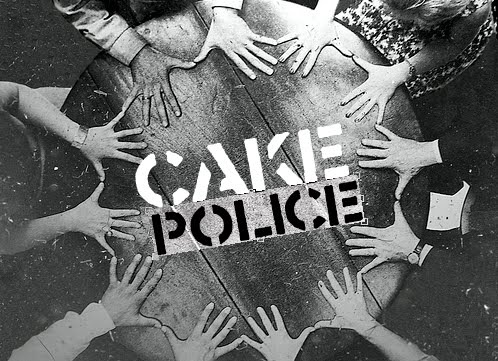Each time the U.S. bombs a new location in the Muslim world, the same pattern emerges. First, officials from the U.S. or allied governments run to their favorite media outlet to claim -- anonymously -- that some big, bad, notorious, "top" Al Qaeda leader "may have been" or "likely was" killed in the strike, and this constitutes a "stinging" or "devastating" blow against the Terrorist group. These compliant media outlets then sensationalistically trumpet that claim as the dominant theme of their "reporting" on the attack, drowning out every other issue.
As a result, and by design, there is never any debate or discussion over the propriety or wisdom of these strikes. After all, what sane, rational, Serious person would possibly question a bombing raid or missile strike that "likely" killed a murderous, top Al Qaeda fighter and struck a "devastating blow" to that group's operationg abilities? Having the story shaped this way also ensures that there is virtually no attention paid to the resulting civilian casualties (i.e., the slaughter of innocent people); most Americans, especially journalists, have been trained to ignore such deaths as nothing more than justifiable "collateral damage," especially when a murderous, top Al Qaeda fighter was killed by the bombs (besides, as Alan Dershowitz once explained, "civilians" in close enough proximity to a Top Terrorist themselves may very well bear some degree of culpability). The adolescentWe-Got-the-Bad-Guy! headline also ensures there is no attention paid to the radicalizing effect of these civilian deaths and our attacks for that country and in the region.
Yet over and over and over, it turns out that these anonymous government assertions -- trumpeted by our mindless media -- are completely false. The Big Bad Guy allegedly killed in the strike ends up nowhere near the bombs and missiles. Sometimes, the very same Big Bad Guy can be used to justify different strikes over the course of many years (we know we said we killed him four times before, but this time we're pretty sure we got him), or he can turn up alive when it's time to re-trumpet the Al Qaeda threat (we said before we killed him in that devastating airstrike, but actually he's alive and more dangerous than ever!!). Just like the "we killed 30 extremists" claim or the"we got Al Qaeda's Number 3" boast, this is propaganda in its purest form, disseminated jointly by the U.S. Government and American media, and it happens over and over, compelling a rational person to conclude that it's clearly intentional by both parties.
In the last week alone, this pattern just asserted itself -- twice -- with regard to the air strikes in Yemen. The first set of strikes, it was immediately leaked, was allegedly aimed at "the presumed leader of al Qaeda in Yemen, Qaaim al-Raymi," yet it turned out he was not among the dozens of people killed, though "U.S. officials believe one of his top deputies [unnamed] may have been killed." Then, after a second set of strikes on Thursday, it was claimed that "a Yemeni air raid may have killed the top two leaders of al Qaeda's regional branch," and an American Muslim preacher linked to Nidal Hasan, "the man who shot dead 13 people at a U.S. army base [Anwar al-Awlaki] may also have died."
But while ABC News had identified "the presumed leader of al Qaeda in Yemen" as "Qaaim al-Raymi" when he was the target of last week's strikes, Reuters decided that the "top two leaders of al Qaeda's regional branch" were completely different people -- "Nasser al-Wahayshi, the Yemeni leader of Al Qaeda in the Arabian Peninsula (AQAP), and his Saudi deputy, Saeed al-Shehri" -- and then excitedly announced that they "may have been killed" by this week's air strikes. Whoever we claim we kill is the "key leader of Al Qaeda's operations"-- and it can change from day to day. And now, it turns out,, the "radical cleric" who reportedly spoke at length with the accused Fort Hood shooter and thus packs the most emotional punch for Americans is not dead at all, but "is alive and well following reports he may have been killed in a Yemeni airstrike against suspected al-Qaida hideouts."
It's painfully obvious that these assertions are made to overwhelm, distort and suppress any discussions of the actual effects of the attack -- who the strike really killed, whether it was justified, legal or wise, whether we should continue to drop bombs in more and more Muslim countries. Yet no matter how many times these claims prove to be false, American media outlets not only dutifully and mindlessly print them without challenge or skepticism, but also allow these claims to dictate their headlines and the overwhelming focus of their "reporting" on the attacks (U.S. Air Strike Said to Kill Top Al Qaeda Leaders). As a result, Americans are innundated with false claims about things that never actually happened -- pure myths and falsehoods -- while the actual consequences of our actions (the corpses of innocent Muslim men, women and children being pulled from the rubble) are widely disseminated in the Muslim world, yet are barely mentioned by our media. And then we walk around, confounded and confused, about how there could be such a grave disparity in perception among our rational, free and well-informed selves versus those irrational, mislead, paranoid, and primitive Muslims.
Because it's all done under the corrupt cover of anonymity, there's never any accountability (reporters will simply say that they printed this because their government sources whispered it in their ears -- so what choice did they have? -- and they'll keep the government officials' identity concealed to ensure they can never be questioned). The whole process is blatantly designed not to convey what happened, but to obscure what happened and to prevent any discussion of its consequences.

No comments:
Post a Comment